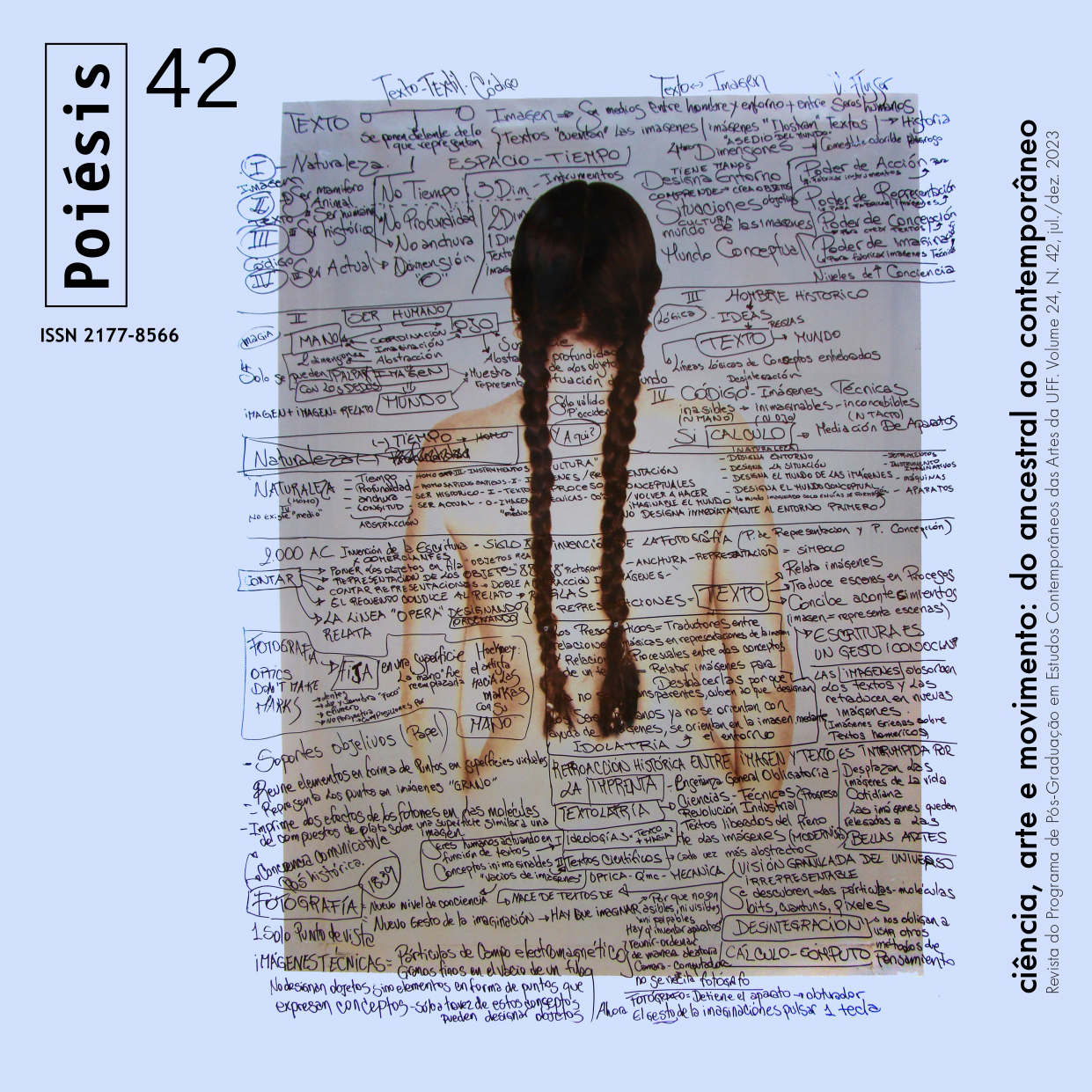THE MANY WORLDS INTERPRETATION OF QUANTUM MECHANICS IN SCIENCE FICTION.
DOI:
https://doi.org/10.22409/poiesis.v24i42.61293Keywords:
Quantum Mechanics, FictionAbstract
The existence of a multiverse made up of multiple perhaps infinite alternates has been seriously considered by physicists since 1957 when Hugh Everett III proposed the Relative State Formulation theory, also known as the theory of Universal Wave Function. Years later, Bryce DeWitt renamed and popularized Everett’s theory by calling it Many-Worlds Interpretation of Quantum Mechanics (MWI). This chapter intends to explain the MWI in more accessible words by demonstrating how this theory has been explored in several popular works of science fiction.
Downloads
References
ABBOTT, Edwin. A. Flatland: A Romance of Many Dimensions.
Mineola: Dover Publications, 1992.
ASIMOV, Isaac. The Gods Themselves. New York: Spectra,
AUGUSTINE. Confessions. Oxford: Oxford University Press,
BELL-VILLADA, Gene. H. Borges and his Fiction. Austin: University
of Texas Press, 1999.
BOHR, Niels. Niels Bohr Collected Works. Amsterdam: Elsevier,
v.1: Early Work (1905–1911).
BORGES, Jorge Luis. Ficções. São Paulo: Schwarcz, 2015.
BYRNE, Peter. The Many-Worlds of Hugh Everett III: Multiple
Universes, Mutual Assured Destruction, and the Meltdown of a
Nuclear Family. Oxford: Oxford University Press, 2010.
CHIANG, Ted. História da sua Vida e Outros Contos. Rio de
Janeiro: Intrínseca, 2016.
DEUTSCH, David. The Fabric of Reality. Londres: Penguin Books,
DICK. P. K. The Man in The High Castle. Boston: Mariner Books,
EVERETT III, H. The Theory of The Universal Wave Function. In:
DEWITT, Bryce Seligman; GRAHAM, Neill (Eds.). The Many-
Worlds Interpretation of Quantum Mechanics. Princeton:
Princeton University Press, 2016, p. 1-140.
FREIRE JR, O.; FREITAS, F.; OSNAGHI, S. The Origin of The
Everettian Heresy. History and Philosophy of Modern Physics, v.
, n. 2. p. 97-123, 2009.
GARNETT, W. Letter to the editor. Nature. fev., 1920, p. 629.
KING, S. 11/22/63. Nova York: Scribner, 2011.
LEIBNIZ, G. W. Theodicy: Essays on the Goodness of God, the
Freedom of Man and the Origin of Evil. [S. l.]: Project Gutenberg,
LEINSTER, M. Sidewise in Time. London: Gateway, 2020.
LEWIS, D. On the Plurality of Worlds. Hoboken: Wiley-Blackwell,
MCDONOUGH, Jeffrey K. Leibniz on Natural Teleology and
The Laws of Optics. Philosophy and Phenomenological Research,
v. 78, n. 3, p. 505-544, may. 2009.
REES, M. Just Six Numbers: The Deep Forces that Shape the
Universe. New York: Basic Books, 2001.
SHIKOVTSEV, E. Biographical Sketch of Hugh Everett III. [S.l. :
s. n.], 2003. Disponível em: https://space.mit.edu/home/
tegmark/everett/everett.html#e23 Acesso em: 7 jul. 2022.
WOLFMAN, M.; PÉREZ, G. Crisis on Infinite Earths. Burbank: DC
Comics, 1985.
Filmes e Séries
22.63. [Seriado]. Direção: Bridget Carpenter. Produção:
Stephen King et al. Estados Unidos: Warner Bros. Television,
son., color.
ANOTHER Earth. Direção: Mike Cahill. Roteiro: Mike Cahill; Brit
Marling. Produção: Mike Cahill; Brit Marling. Estados Unidos: Fox
Searchlight Pictures, 2011. son., color.
ARRIVAL. Direção: Denis Villeneuve. Roteiro: Eric Heisserer.
Produção: Shawn Levy et al. Estados Unidos: Paramount Pictures,
son., color.
MIRROR, Mirror (temporada 2, ep. 4). Star Trek: The Original
Series [Seriado]. Direção: Marc Daniels. Produção: Desilu
Productions, Estados Unidos, 1967. son., color.
STRANGER Things. [Seriado]. Direção: Matt Duffer; Ross Duffer.
Produção: Netflix, Estados Unidos, 2016. son., color.
THE MAN in the High Castle. [Seriado]. Criador: Frank Spotnitz.
Produção: Michael Cedar et al.. Estados Unidos: Amazon
Studios, 2015. son., color.
THE OA. [Seriado]. Direção: Brit Marling; Zal Batmanglij.
Produção: Brit Marling; Zal Batmanglij, Estados Unidos, 2016.
son., color.
Downloads
Published
Versions
- 2024-03-12 (2)
- 2023-12-30 (1)
How to Cite
Issue
Section
License
Copyright (c) 2023 Alexey Dodsworth

This work is licensed under a Creative Commons Attribution-NonCommercial-NoDerivatives 4.0 International License.
Authors who publish in Revista Poiésis agree to the following terms:
- The authors keep the copyright and grant the journal the right of first publication. The work is automatically licensed under the Creative Commons Attribution License, which enables its sharing as long as the authorship and initial publication in this journal are acknowledged.
- Authors are allowed and encouraged to distribute online their work published in Revista Poiésis (in institutional repositories or in their own personal page), since this can generate productive interactions, as well as increase the impact and citation of the published work (See The Effect of Free Access).


